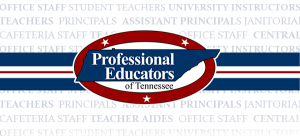The debate over universal school vouchers at the Tennessee General Assembly will be a battle. Voucher supporters enjoy the home-field advantage and the bully pulpit of the governor. Supporters will be well-funded. Voucher opponents can point to voucher expansion bills that have failed in at least six states in 2023: Georgia, Texas, Idaho, Virginia, Kentucky, and South Dakota.
Voucher proposals are not a traditional left-right issue. If you look deep enough you will find that a lot of funding comes from left-leaning groups and donors. Many of the supporters tend to be right-leaning. It would be a mistake to view this strictly from a partisan point of view.
Reforming American public education has been plagued by inadequate measures, incorrect diagnoses, and blame-shifting. In Tennessee, officials initially supported Race to the Top, but later rejected Common Core. Some policymakers seek to reduce reliance on Federal Education dollars, but it's unlikely.
Educators are caught in the crossfire and blamed for poor education policy decisions made by elected and appointed officials. As John F. Kennedy was fond of saying: “success has many fathers, but failure is an orphan.” Just as in Kennedy’s time, people will seek credit for success, but few will accept responsibility for failure.
Nobody has seen the proposed legislation on the voucher bill, still, we see policymakers lining up in support and critics already expecting the worst. So, what do we know?
The latest voucher proposal would be funded through a separate scholarship account, not the funding structure currently in place for public schools. The new funding formula, Tennessee
Investment in Student Achievement (TISA) enacted this year was designed to prioritize students and invest in the future of Tennessee.
Do Tennessee taxpayers want to pay for two separate education systems? Would both systems provide equal educational opportunities for all students? These are some questions policymakers need to know before enacting legislation. There must be a requirement for private schools that accept voucher students to admit children with disabilities to align with inclusivity and ensure that educational opportunities are available to all.
There has been no cost analysis done on any legislative proposal, so it is impossible to know exactly how much the proposed legislation will ultimately cost taxpayers, how much would be needed to implement and manage the program, or how much public schools could ultimately lose in TISA funding. Mandating fiscal accountability through annual fiscal audits would help maintain financial stability and ensure public trust in private institutions.
States that have implemented voucher programs that supporters often cite for success, like Florida or Indiana, have strict rules and regulations to protect taxpayer money and provide greater transparency. Rules and regulations must be in place in proposed legislation to ensure quality and accountability, as well as prevent fraud and mismanagement. This needs to be a vigorous discussion in the Tennessee General Assembly.
Private schools accepting vouchers must be accredited. Any homeschool must be registered with the state and follow the same rules and regulations for receiving public funds. We recommend requiring licensure for teachers to ensure a certain level of professional qualification with the required background screening. At a minimum, schools accepting voucher students should only be permitted to contract with teachers who hold a baccalaureate or higher degree or have at least three years of teaching experience in public or accredited private schools.
The Tennessee Comprehensive Assessment Program (TCAP) or a nationally norm-referenced test can help in setting a standardized benchmark for student performance, allowing for better comparison across schools. Public reporting of test results and demographic data fosters transparency and accountability, helping parents and policymakers make informed decisions.
Finally assigning A-F grades to private schools, like their public and charter school counterparts, can help parents and policymakers understand school performance more easily. It can provide clear and concise information about how well schools receiving government dollars are doing.
To succeed in education we must strike the right balance of oversight and autonomy. Simultaneously, the Tennessee General Assembly should reduce bureaucratic hurdles in public schools to improve learning. Giving schools more flexibility will allow for innovation, accountability, better education, and less paperwork for teachers.
Politics often reflects our shared experiences, values, and aspirations as a society. As the next legislative session approaches, it's important to speak up about your concerns, advocate for the changes you want to see, and work towards creating a better world for both our present and future generations. Your involvement in the voucher debate will help shape your community and the state as a whole.
##
JC Bowman is the Executive Director of Professional Educators of Tennessee











